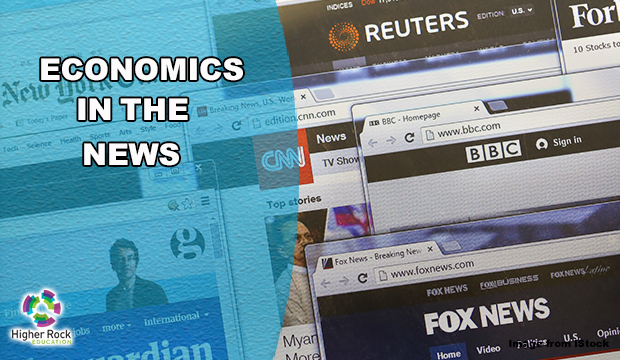
Economics in the News – June 12-18, 2023
Economics impacts our lives every day. Below are some of the top storylines from this past week related to economics.
o Higher rates are contributing to an easing in the construction industry. Most economists say that central banks have no choice but to raise rates if they want to bring prices under control. But the consequences could worsen the housing shortage and drive-up future home prices. New building permits in the United States were 21.1 percent lower in April compared to 12 months ago.
High interest rates are hurting construction companies because of the more expensive cost to build. Companies within the construction industry are still dealing with a labor shortages and expensive materials. Experts say that government intervention is unlikely at the federal level, but more state and local governments could lift zoning restrictions and expedite permitting for new housing to encourage construction. [The Wall Street Journal]
o Central bankers globally continue to raise interest rates and warn investors that prices could remain high for some time. Inflation in the US and Europe remains around 5 percent. Central bankers need to decide if more rate hikes are needed if inflation has stalled above the 2 percent target or if it’s decline is delayed.
Central banks in the Australia, Canada, the European Union, England have already or are expected to raise rates this month. Businesses and households may have adjusted to new world of soaring prices by permanently changing their behavior, making it become costly to return to a world of low, stable inflation. [The Wall Street Journal]
o The US gross national debt exceeded $32 trillion for the first time last Friday, June 16. The US reached the $32 trillion mark nine years faster than pre-pandemic forecast, showing the trillions of dollars in emergency assistance to address the COVID-19 pandemic’s impact along with sluggish economic growth.
The US is on track to top the $50 trillion mark at its current pace by the end of the decade, despite agreement to cut federal spending by $1.5 trillion in the deal to suspend the debt limit. Both Republicans and Democrats have expressed concern regarding the national debt, but are wary to tackle social programs such as Social Security or Medicare – which are two of the biggest drivers for the debt. [The New York Times]
o Instant Brands, the maker of Instant Pot and Pyrex glassware, has filed for Chapter 11 bankruptcy. The brand surged during the early stages of the pandemic when families were unable to dine out or hesitant to order-in. It made it easier to cook. The brand was a victim of post-pandemic trends, while the sturdy glassware products last decades.
Instant Pot was founded in 2009 and became increasingly popular and in the early-to-mid 2010s when multicookers grew in popularity. It even was the top-selling item on Amazon Prime Day in 2016 with more than 200,000 orders. The company was acquired in 2019 by private equity firm Cornell Capital and merged it with Corelle Brands, the maker of Pyrex. [The Washington Post]
o For nearly a century, the US dollar has been the dominant global currency, becoming the measurable currency in which business is conducted at the international level. The dollar’s rise to international prominence happened after World War II in part to establish an international system for trade and finance, helping to bind the world together. Prior to World War II, the British Sterling was the most dominant currency in the world, but the enormous costs of fighting a war in Britain took its toll on the economy.
But there are now challengers emerging, seeking to become the world’s most dominant currency. China, Russia, Saudi Arabia, the United Arab Emirates and Brazil have started making trades in other currencies. It is a direct challenge to the US dollar’s international position. China is pushing to have the Yuan replace the dollar as the global currency and arguing that the US debt ceiling could make the US dollar risky and unstable. In addition, countries with a complicated relationship with the US are watching the impact of the financial sanctions that the government placed on Russia or North Korea. [NPR]